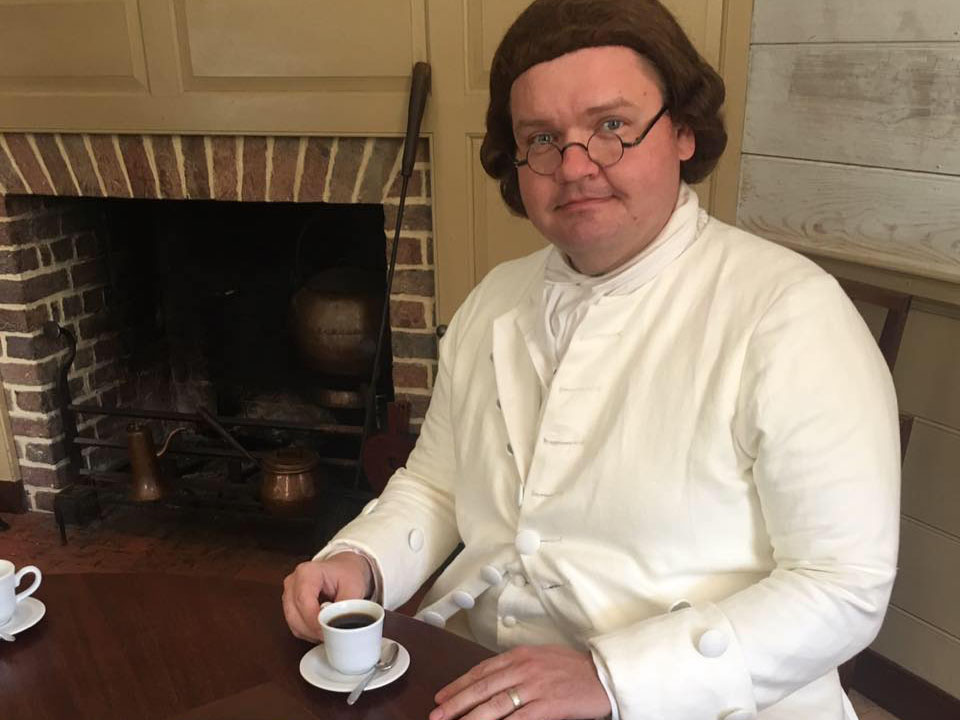Get to know Colonial Williamsburg’s newest Nation Builder
“Nice to meet you, I’m George. No, not that George. No, not King George, either. My name is George Wythe”
-Me, daily
I will admit to you, gentle reader: before I accepted a job at Colonial Williamsburg and moved from my home in South Atlanta to Virginia, I had never heard of George Wythe. I’m certain I had seen or heard his name at some point in my life of, then, 24 years, but young Robert took much more notice of the names necessary for the tests in high school: Jefferson, Washington, Adams, and even Marshall. These were the names in textbooks, names I saw on the side of public buildings, and looked for on street signs. George Wythe, however, was foreign to me. Perhaps I glanced over the name when looking at a copy of the Declaration of Independence, or heard he was the teacher of Thomas Jefferson, but as to how much this single man shaped the Revolution in America and the subsequent Republic, I was clueless.

As you probably guessed by the title of this blog post, things have changed. Over the past dozen years, I’ve learned a great deal by living and working in the 18th century at Colonial Williamsburg. I’ve also had the pleasure of portraying people from many different walks of life, including Lord Dunmore, Henry Knox, and Richard Charlton of the Coffeehouse, all of whom were in and around Williamsburg at some point during the Revolutionary time frame. While these people all have a unique story to tell, learning about them taught me more about Williamsburg and its role in the Revolution and, subsequently, about the man central to this blog post: George Wythe.
In March, I was offered the opportunity to join the ranks of the Nation Builders at Colonial Williamsburg in the role of Mr. Wythe, and embarked on several months of study about his life and incredible influence on the Revolution and Early Republic. Worthy of the title, “Nation Builder,” his accomplishments and example helped create the revolutionary generation, and afterward, construct a new political system founded on principles he himself practiced and encouraged in others.
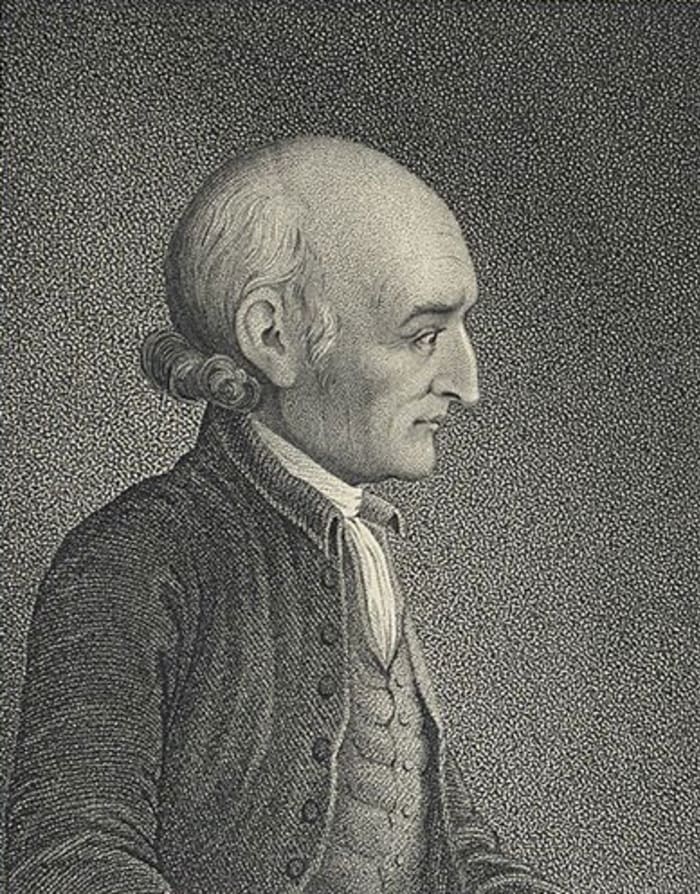
These are, indeed, big shoes to fill. So, why don’t we start with the basics? Allow me, dear blogophiles, to introduce you to one of the most important people you’ve never heard of, Mr. George Wythe.
TEACHER OF REVOLUTIONARIES
Most of the time, if someone has heard of Mr. Wythe before, they know him as the teacher of Thomas Jefferson. Young Jefferson came to study law under Wythe in 1762, continuing his studies for several years. As the two became friends, the impressionable Jefferson drew close to his mentor, who endeavored to impart the best education possible to his young apprentice. Mr. Wythe’s list of notable students, however, extends beyond Jefferson, and includes the names St. George Tucker, Bishop James Madison, John Marshall, Spencer Roane, Bushrod Washington, and Henry Clay. For much of his career, the place of learning was within his own home, but his influence expanded in 1779 when he accepted the Chair of Law and Police at The College of William and Mary and became the first professor of law in America. Education in law under his hand was widely valued and encouraged. In 1788, Thomas Jefferson wrote to an acquaintance,
“I cannot but approve your idea of sending your eldest son, destined for the Law, to Williamsburg... The pride of the institution is Mr. Wythe, one of the Chancellors of the State, and Professor of Law in the College. He is one of the greatest men of the age, having held without competition the first place at the Bar of our General Court for 25 years, and always distinguished by the most spotless virtue.”
George Wythe held the position until he resigned his seat at William & Mary in 1789, just before he moved to Richmond. Though he was no longer lecturing to many students at once, he continued to take apprentices in his home. This was a practice he continued until his final days.
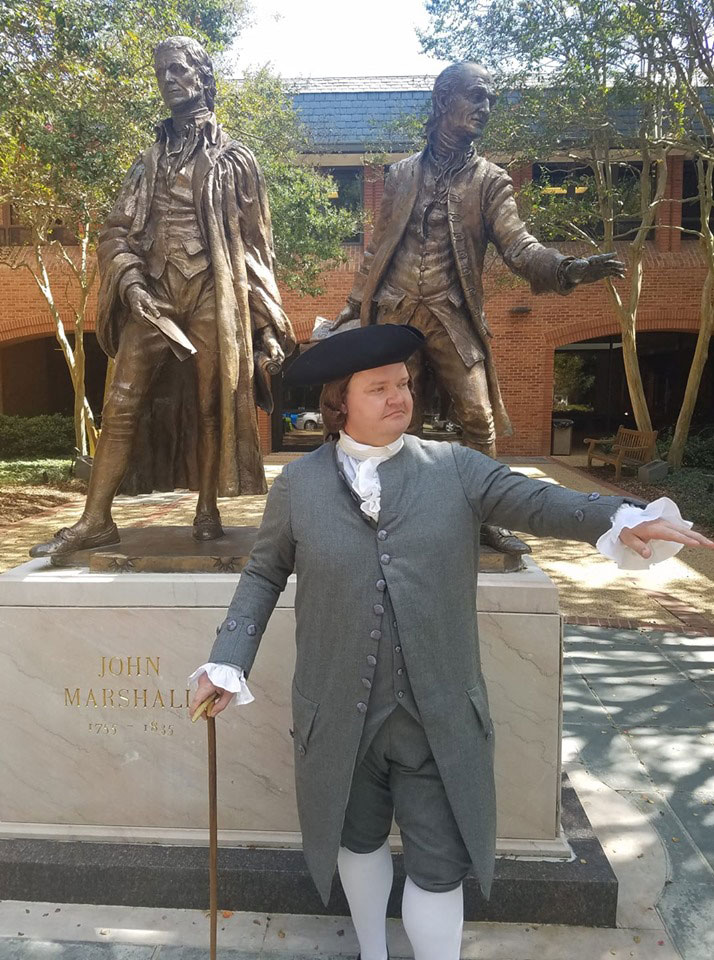
VENERABLE JUDGE
Around 1755, George’s older brother, Thomas, died without heirs, and George inherited the family estate at Chesterville, near Hampton, Virginia. With this inheritance came the duties of a gentleman planter, and he was appointed to justice of the peace in Elizabeth City County. Sitting on the bench in his home county, thus began the judicial career of one of the most influential men to take the bench in Virginia’s illustrious history. Though the last record we have of him serving Elizabeth City is dated to 1766, we know he continued to be thought of as one of the preeminent experts on law in Virginia, as he was appointed to one of three seats on Virginia’s Chancery Court in 1778, alongside Edmund Pendleton and Robert Carter Nicholas. Chancery courts functioned as courts of equity, and required not only extensive legal knowledge, but strength of character and integrity to properly oversee.
One of Wythe’s landmark cases came in 1782 as he served ex officio on the Court of Appeals: Commonwealth v. Caton. The details of the case are extensive, but, in his opinion, Judge Wythe introduced the concept of judicial review in Virginia. Questions about whether the judiciary could strike down laws in conflict with the Constitution had been considered before under British Common Law, but the concept had not been enacted in either British Virginia or the new Republic, up to this point. The respected judge left little room for interpretation on the matter when he spoke his opinion,
“...if the whole legislature, an event to be deprecated, should attempt to overleap the bounds, prescribed to them by the people, I, in administering the public justice of the country, will meet the united powers, at my seat in this tribunal; and, pointing to the constitution, will say, to them, here is the limit of your authority; and, hither, shall you go, but no further.”
After March of 1789, Wythe’s associates on the Virginia Chancery resigned to take other offices, leaving him as sole Chancellor for the young Commonwealth. He would hold this office until his death, overseeing numerous cases, offering opinions, and, from this seat, changing the fabric of Virginia society.
SIGNER OF THE DECLARATION OF INDEPENDENCE
In 1775, George Wythe was elected to fill the seat at the Continental Congress vacated by George Washington after he was appointed General of the Continental Army. Wythe traveled to Philadelphia with his wife, Elizabeth Talliafero Wythe, and during his time there made the acquaintance of like-minded revolutionaries John and Samuel Adams. While the question of independence was very much up for debate at this time, Delegate Wythe made his sentiments very clear on October 6 of 1775:
“Arms must decide, whether we shall be subject to laws made by men who are not appointed, approved of or controllable by us, whose interest it is to oppress us; or shall be subject to laws made by men we ourselves choose and may change, who bear their just proportions of the burdens they impose upon the community, and whose true glory it is to advance its posterity; in other words, whether we shall resign ourselves to the government of arbitrary rulers, and our property to the disposition of those who are under many temptations, but no restraint, to take it away from us… this is the season when others may prove that love for their country which they profess themselves to be inspired with, and shew that they are what they would appear to be…”
George Wythe was not at the Congress when independence was declared on July 2, 1776, nor when the Declaration of Independence was adopted on July 4. His sentiments, however, were known. By September of that year, he was back in Philadelphia, and when he returned to congress, his heart must have swelled with pride when he laid eyes on the document penned by his former apprentice. One could not help but notice, as he took up the quill to sign the document, the worthy gentlemen of the Virginia delegation, in recognition and deference to him, left a blank space to sign his name at the top.
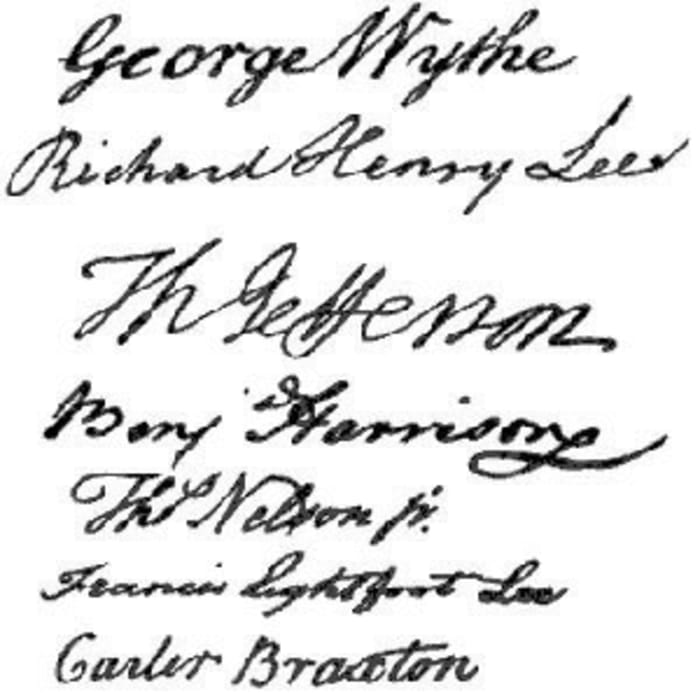
By the time of his death in 1806, George Wythe had become one of the most influential men in America. Through his teaching, seat on the bench, and political influence, his adherence to principle and the expectation that others would do the same elevated him in the eyes of his contemporaries and, I hope, the eyes of the reader. As the author of this blog and as an interpreter, it is my desire to continue exploring and Mr. Wythe, his influence, his virtues, and even his foibles at Colonial Williamsburg. Thanks for reading, and I’ll see you on The Duke of Gloucester Street!
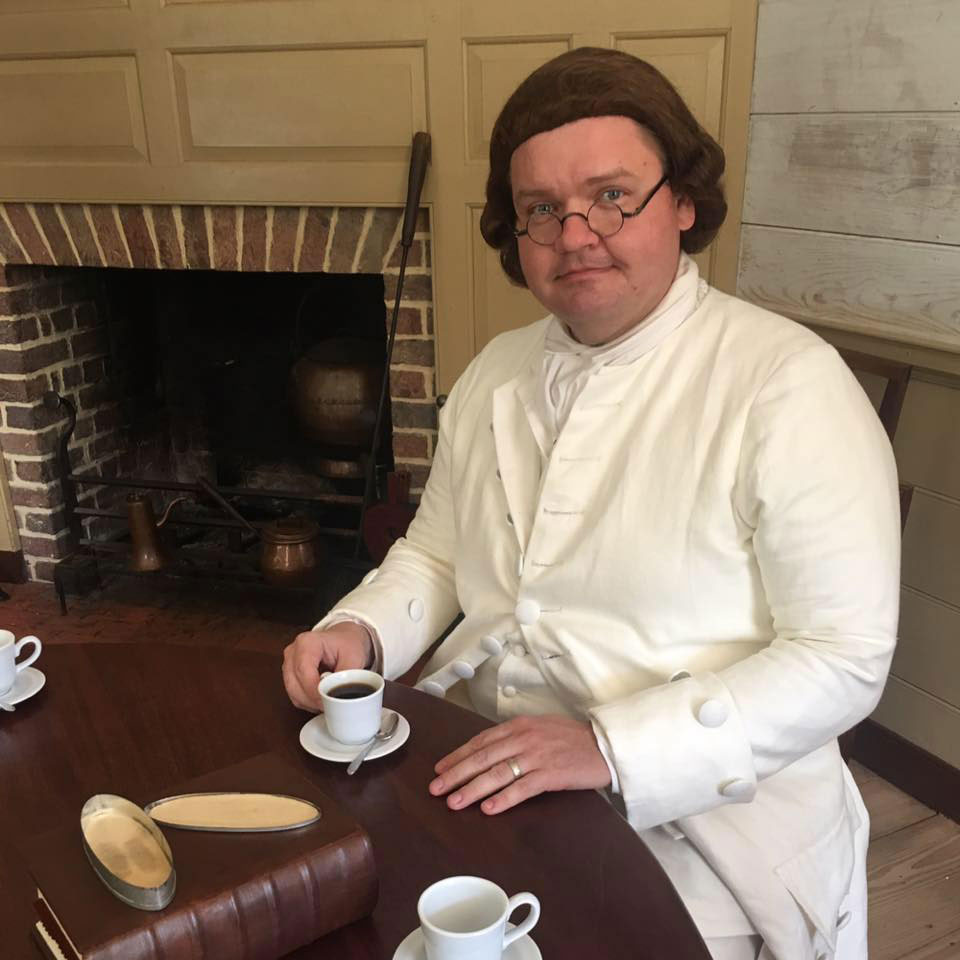
Robert Weathers has been working as a first-person interpreter at Colonial Williamsburg since January 2008 and premiers this fall as Nation Builder George Wythe. When he is not in breeches, he can often be found wearing shorts no matter the weather, and riding roller coasters with his wife Kaitlyn.
Learn More
Related Events
-
Performance: God is My Rock
Gowan Pamphlet, an enslaved man and popular local preacher, offers his perspective on slavery, religion, and freedom.
CW Admission
-
Performance: Visit with Marquis de Lafayette
Step into the past with the Marquis de Lafayette, French hero of two worlds. Through stories and questions, explore the hopes, choices, and challenges he faced.
CW Admission
-
Performance: Teach them Diligently
Journey with Ann Wager, a lifelong teacher in Colonial Virginia, as she experiences what it takes to run the Williamsburg Bray School.
CW Admission
